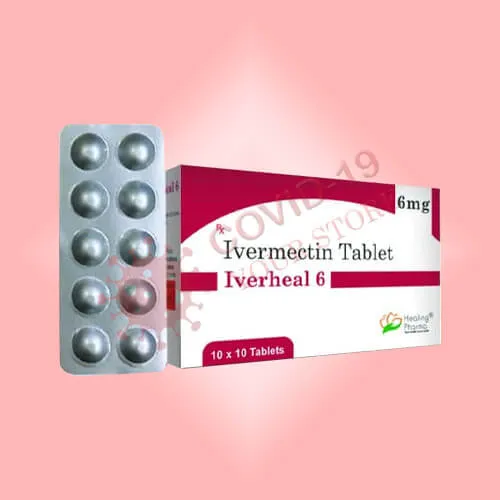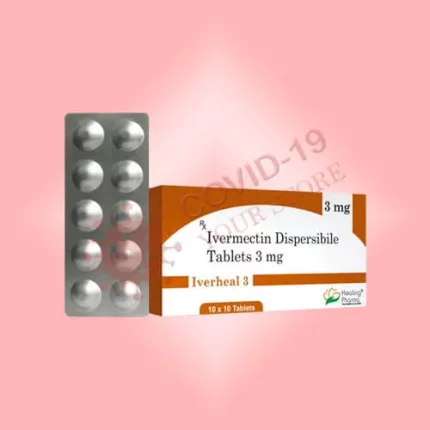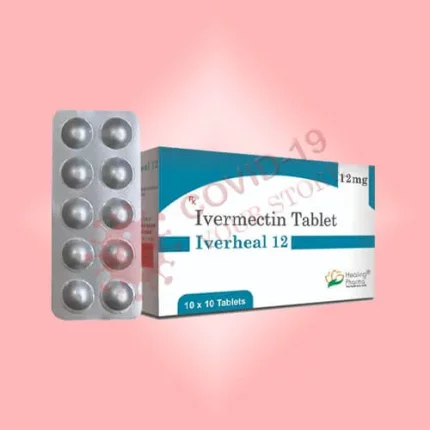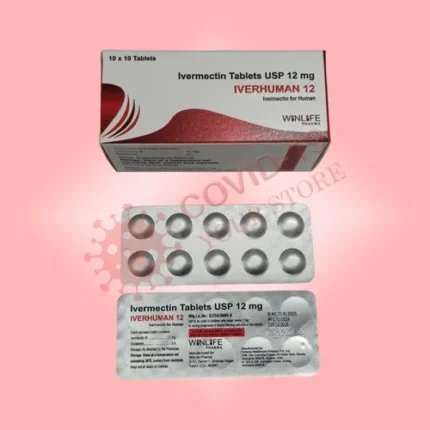What is Ivermectin 6 mg?
Ivermectin 6 mg is an antiparasitic medication that is commonly used to treat a variety of parasitic infections in both humans and animals. It belongs to the class of drugs called macrolide antibiotics, and it works by targeting and eliminating parasites that infect the body.
The 6 mg dosage is often used for treating milder infections or for individuals requiring lower doses based on their weight and the type of infection. Ivermectin is typically used to treat conditions like scabies, river blindness (onchocerciasis), strongyloidiasis, and intestinal worms. It is also sometimes used to treat head lice and rosacea, though it is more commonly prescribed for parasitic infections.
How Does Ivermectin 6 mg Work?
Ivermectin works by targeting the nerve and muscle cells of parasites. It binds to specific chloride channels in the parasite’s nervous system, causing paralysis and eventual death of the parasite. This action is selective for parasites, which is why Ivermectin is generally safe for humans when taken as directed.
The drug works effectively against a wide range of parasitic organisms, such as roundworms, threadworms, flukes, and lice. It is especially effective in treating skin infestations caused by mites, such as scabies. However, Ivermectin is not effective against bacterial or viral infections, and it should only be used for parasitic conditions.
Benefits of Ivermectin 6 mg
- Effective Treatment for Parasitic Infections:
Ivermectin 6 mg is highly effective in treating a variety of parasitic infections, including river blindness, strongyloidiasis, scabies, and intestinal worms. It helps to reduce symptoms and eliminate the parasites from the body. - Versatile in Treating Skin Conditions:
Ivermectin 6 mg is often prescribed for skin conditions like scabies, a condition caused by microscopic mites that burrow into the skin. It can also be used to treat rosacea, a skin condition that causes redness and inflammation. - Prevention of Disease Transmission:
In areas where parasitic diseases are common, Ivermectin is used in mass drug administration programs to help reduce the transmission of diseases like river blindness and lymphatic filariasis. By reducing the number of infected individuals, these programs help control the spread of these diseases. - Low Risk of Side Effects:
When used appropriately, Ivermectin 6 mg is generally safe and well-tolerated. It is a reliable treatment option with a low incidence of side effects, especially when used for the conditions it is approved to treat.
How to Take Ivermectin 6 mg
- Dosage:
The dosage of Ivermectin 6 mg depends on the condition being treated. For example, a single dose of 6 mg is typically prescribed for treating strongyloidiasis. For conditions like scabies or river blindness, the dosage and frequency of administration may vary. It is essential to follow your healthcare provider’s instructions regarding the appropriate dosage for your condition. - Administration:
Ivermectin 6 mg tablets should be taken with a full glass of water, preferably on an empty stomach for better absorption. The medication should be swallowed whole and not chewed or crushed. - Missed Dose:
If you miss a dose of Ivermectin, take it as soon as you remember. However, if it is almost time for your next dose, skip the missed dose and resume your regular dosing schedule. Do not take two doses at once to make up for a missed dose. - Consistency:
For the best results, take Ivermectin as prescribed by your doctor. Do not stop taking the medication prematurely, even if you start feeling better, as this can allow the infection to return.
Who Makes Ivermectin 6 mg?
Ivermectin 6 mg is produced by several pharmaceutical companies, including Merck & Co., which originally developed the drug. It is also available as a generic medication, which makes it more affordable and accessible to patients. The generic versions are manufactured by various companies worldwide, offering the same efficacy and safety as the branded version.
Is Ivermectin 6 mg Safe for Humans?
When used as directed, Ivermectin 6 mg is generally considered safe for humans. It has been used for decades to treat parasitic infections, and its safety profile is well-established. However, like all medications, it can cause side effects in some individuals.
Before taking Ivermectin, it is important to inform your healthcare provider if you have any pre-existing conditions, such as liver disease, kidney problems, or allergies to medications. Ivermectin is typically not recommended for use during pregnancy unless the benefits outweigh the risks, and it should be avoided in breastfeeding women unless prescribed by a doctor.
Side Effects of Ivermectin 6 mg
While Ivermectin is generally well-tolerated, some people may experience side effects. Common side effects include:
- Headache
- Dizziness
- Nausea
- Fatigue
- Skin rash
- Abdominal pain or diarrhea
In rare cases, more serious side effects may occur, such as:
- Severe allergic reactions, including swelling of the face, lips, or throat
- Liver problems, such as jaundice (yellowing of the skin or eyes)
- Vision changes or eye irritation
If you experience any of these serious side effects, seek medical attention immediately.
Disclaimer
This content is for informational purposes only and should not be considered as medical advice. Always consult your healthcare provider before starting or discontinuing any medication, including Ivermectin 6 mg. Follow your doctor’s instructions regarding dosage and usage, and report any side effects or concerns promptly.











